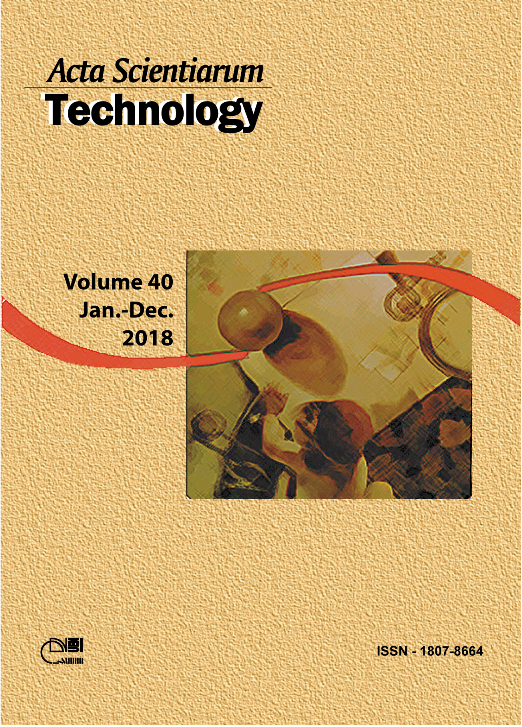<b>Release optimization of fermentable sugars from defatted rice bran for bioethanol production
DOI:
https://doi.org/10.4025/actascitechnol.v40i1.35000Palavras-chave:
alcoholic fermentation, strategy of experimental design, reducing sugars for bioprocess, proteaseResumo
The aim of this study was to optimize the enzymatic hydrolysis of defatted rice bran (DRB) for release fermentable sugars with subsequent bioethanol production. Optimization of enzymatic hydrolysis was achieved using a sequential experimental design, performing a fractional factorial design (FFD) followed by two Central Composite Rotatable Designs (CCRDs). The optimization was achieved under the conditions of 200 g L-1 of DRB concentration, 30 μL of α-amylase g-1 of DRB and 40 μL g-1 of amyloglucosidase (AMG), at action times of two and three hours, respectively. In bioethanol production, it was evaluated the effect of adding of 15 μL g-1 of protease prior to the action of amylases. Fermentation was conducted at 29°C, with 4.0% Saccharomyces cerevisiae and initial pH of 5.0. The hydrolysis with protease yielded 3.55% ethanol, an increase of 115.15% in relation to the medium without protease addition, and the conversion had a yield of 101.5% in 24h of alcoholic fermentation. This study demonstrates the possibility to obtain bioethanol from DRB.
Â
Â
Downloads
Downloads
Publicado
Como Citar
Edição
Seção
Licença
DECLARAÇíO DE ORIGINALIDADE E DIREITOS AUTORAIS
Declaro que o presente artigo é original, não tendo sido submetido í publicação em qualquer outro periódico nacional ou internacional, quer seja em parte ou em sua totalidade.
Os direitos autorais pertencem exclusivamente aos autores. Os direitos de licenciamento utilizados pelo periódico é a licença Creative Commons Attribution 4.0 (CC BY 4.0): são permitidos o compartilhamento (cópia e distribuição do material em qualqer meio ou formato) e adaptação (remix, transformação e criação de material a partir do conteúdo assim licenciado para quaisquer fins, inclusive comerciais.
Recomenda-se a leitura desse link para maiores informações sobre o tema: fornecimento de créditos e referências de forma correta, entre outros detalhes cruciais para uso adequado do material licenciado.



















